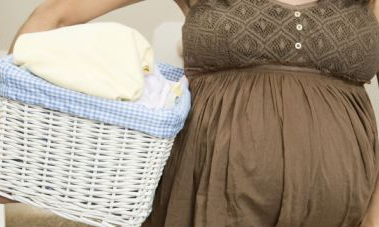Still clean from top to bottom, from left to right (starting with the highest point in the room). You're not going to miss anything this way, and you're not going to smash dust or dirt into an area that you've already washed. Got a sense?
 Zone Sweeping, or room to room cleaning, would just slow you down. Have you ever spent hours doing bathroom cleaning? Exactly my point. Task Cleaning gets you going (for example, dusting all at once). And who couldn't use every week a little extra exercise?
Zone Sweeping, or room to room cleaning, would just slow you down. Have you ever spent hours doing bathroom cleaning? Exactly my point. Task Cleaning gets you going (for example, dusting all at once). And who couldn't use every week a little extra exercise? Many busy moms swear to keep their housekeeping duties under control by establishing a regular cleaning schedule. Here is a schedule of samples to try. Feel free to make it your own by turning this around. The idea is not to set up for failure yourself. Get inspired, get organized, and take once and for all care of your housekeeping. And you can still recruit some help if anything else fails.
Mondays: Dust the whole house, room-to-room work.
Tuesdays: Glass and Mirrors, Surface Washing. Wipe down all surfaces and counters, disinfecting as required in the home. Do not forget about door handles and light switches, since they actually carry germs, especially in the flu and cold seasons.
Wednesdays: Toilets and kitchens. Before retiring to bed each night, I make sure all the dishes are washed. If we've had an especially messy meal, I'll wipe down the counters and floors quickly, too. Save the big-time cleaning for this particular day, however. Otherwise, you're going to drive yourself nuts!
Thursdays: Mop and clean the whole house (as needed). If you have a giant home, you may want to spend a week on one floor, and another on the next. Mama, give yourself some grace! You deserve that.
Fridays: Cloth for furniture. Moving through the house, stripping beds and remaking them as needed. Tidy some pillows and sheets to throw away. As required, brush furniture surfaces with a vacuum attachment. This could be a good time to deal with washing and ironing as well (if you can get away with doing it once a week). Then everyone has clean bedding and clothes for the weekend to enjoy!
Saturdays and Sundays: spend your family time with you! That also leaves time for the week ahead for menu planning, grocery shopping, and meal preparation.
Wipe and clean waste baskets, wipe and dust ceiling fans, and baseboards and doors with dust once a month.
Every 3 to 6 months: molding the dust crown, washing the stove scrub, and emptying and cleaning cabinets and closets (this could also be once a year).


